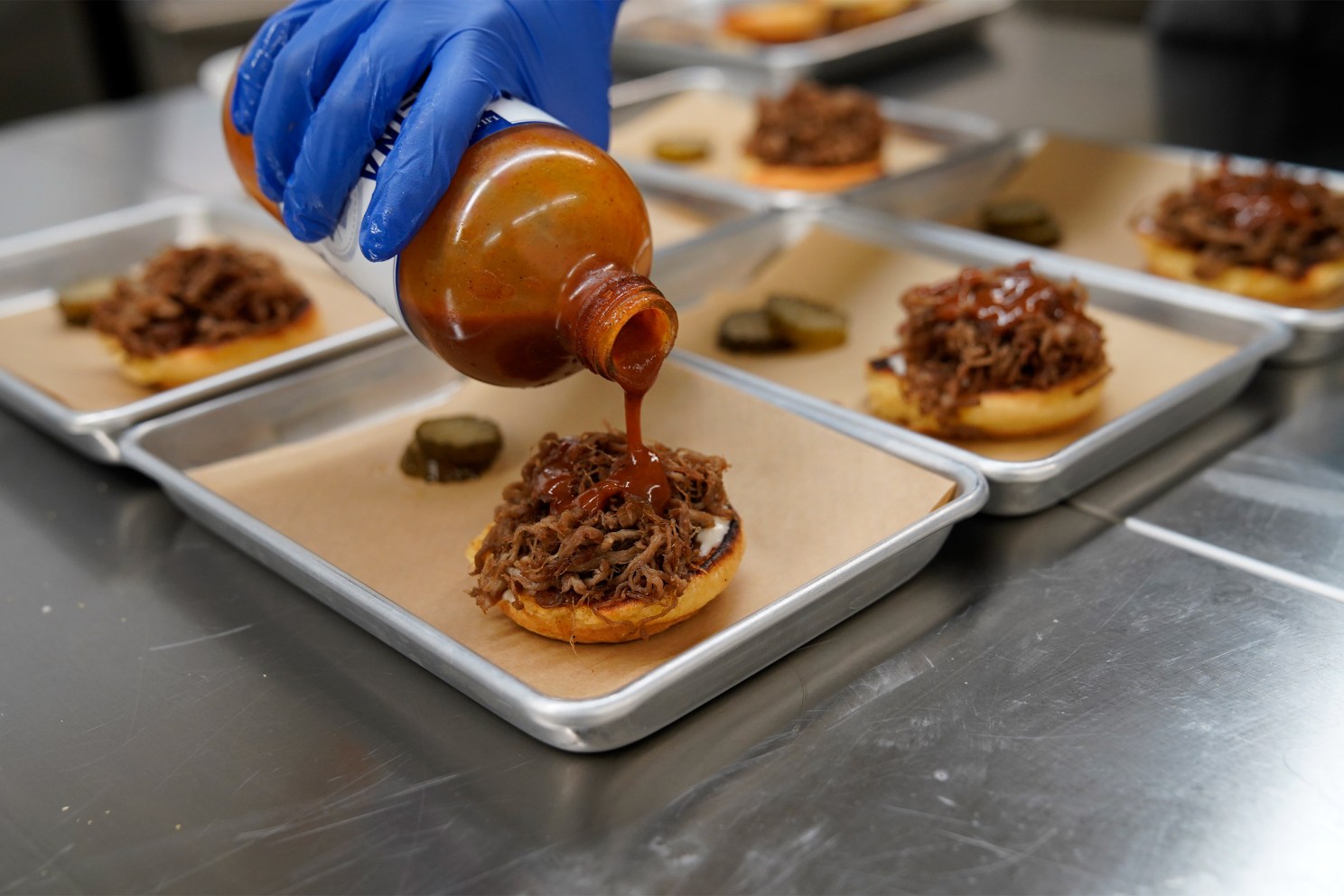Harvard researchers launch alternative meat startup

Tender Food can simulate the texture and complexity of whole-muscle cuts such as pulled pork. Courtesy of Tender Foods
“Do you like meat?”
That was the first question Kit Parker, the Tarr Family Professor of Bioengineering and Applied Physics at the Harvard John A. Paulson School of Engineering and Applied Sciences (SEAS), asked Christophe Chantre when he interviewed for a position in Parker’s Disease Biophysics Group. Parker was looking for people to work on a project producing meat alternatives from vegetable proteins, using a technology originally designed to create nanofiber wound dressings and body armor.
Chantre was pursuing a master’s degree in mechanical engineering at the Swiss Federal Institute of Technology Zurich, but had become increasingly interested in the intersection of biology and biomedical engineering with climate and sustainability.
Nearly 60 percent of global greenhouse emissions are linked to the production and processing of meat, according to a 2021 study published in Nature Food. Developing alternative, plant-based meats turned out to be exactly the kind of work Chantre was looking for.
“I always wanted to work on something related to sustainability and climate,” Chantre said. “[Parker] offering this project around lab-grown meat was a dream job, because that’s where I was going in terms of my work and specialization, and it married my interest with sustainable work.”
Parker and Chantre are now among four co-founders of Tender Food, a Boston-based food technology startup, based on that research, that today announced $12 million in seed financing led by Lowercarbon Capital. Tender’s founders say their products will differ from other alternative meat in texture and mouthfeel, as the core innovations licensed from Harvard enable the company to simulate the texture and complexity of whole-muscle cuts such as pulled pork, chicken breast and steak. The company is gearing up for a first product launch this year.
“The fibers’ texture is very important to the eater’s perception that they’re eating meat,” said Parker, who in addition to his faculty appointment at SEAS is an associate faculty member of Harvard’s Wyss Institute for Biologically Inspired Engineering. Parker taught a course on the science of BBQ at Harvard in 2015 that spun out another Boston area company, Desora, after he and students patented a smoker.
Parker’s interest in alternative meats goes back many years, but it was an unrelated project with support from the National Science Foundation that set the gears in motion. Parker and several members of his research group developed innovations in Rotary Jet-Spinning, in which a liquid polymer solution is loaded into a reservoir, then ejected through a small opening by centrifugal force as the device spins.
As the device spins, the polymers elongate into fibers.
Parker said, “We were making nanofibers out of everything from lemongrass to soy to alfalfa.”





